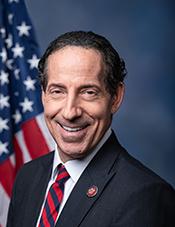0
Open App Markets Act
12/29/2022, 9:48 PM
Summary of Bill HR 7030
One of the key provisions of the Open App Markets Act is to prohibit app store operators from engaging in certain anti-competitive behaviors, such as giving preferential treatment to their own apps or blocking developers from using alternative payment systems. The bill also aims to increase transparency in app store operations and ensure that developers have access to the same information and tools as the app store operators.
Additionally, the Open App Markets Act includes measures to protect consumer privacy and data security, requiring app store operators to obtain explicit consent from users before collecting their personal information and to implement strong security measures to protect that data. Overall, the Open App Markets Act is designed to level the playing field for app developers and promote competition in the app marketplace, ultimately benefiting consumers by providing them with more choices and better protections. The bill is currently being debated in Congress, with supporters arguing that it is necessary to address the growing power of tech giants in the app market, while opponents raise concerns about potential unintended consequences and regulatory overreach.
Congressional Summary of HR 7030
Open App Markets Act
This bill establishes rules related to the operation of an app store by a covered company (i.e., the owner or controller of an app store with more than 50 million U.S. users).
An app is a software application or electronic service that may be run or directed by a user on a computer or mobile device. An app store is a publicly available website, software application, or other electronic service that distributes apps from third-party developers to users.
The bill prohibits a covered company from (1) requiring developers to use an in-app payment system owned or controlled by the company as a condition of distribution or accessibility, (2) requiring that pricing or conditions of sale be equal to or more favorable on its app store than another app store, or (3) taking punitive action against a developer for using or offering different pricing terms or conditions of sale through another in-app payment system or on another app store.
A covered company may not interfere with legitimate business communications between developers and users, use non-public business information from a third-party app to compete with the app, or unreasonably prefer or rank its own apps (or those of its business partners) over other apps.
The bill provides for enforcement of its provisions by the Federal Trade Commission and the Department of Justice, as well as through suits brought by developers that are injured by reason of anything prohibited by this bill.





